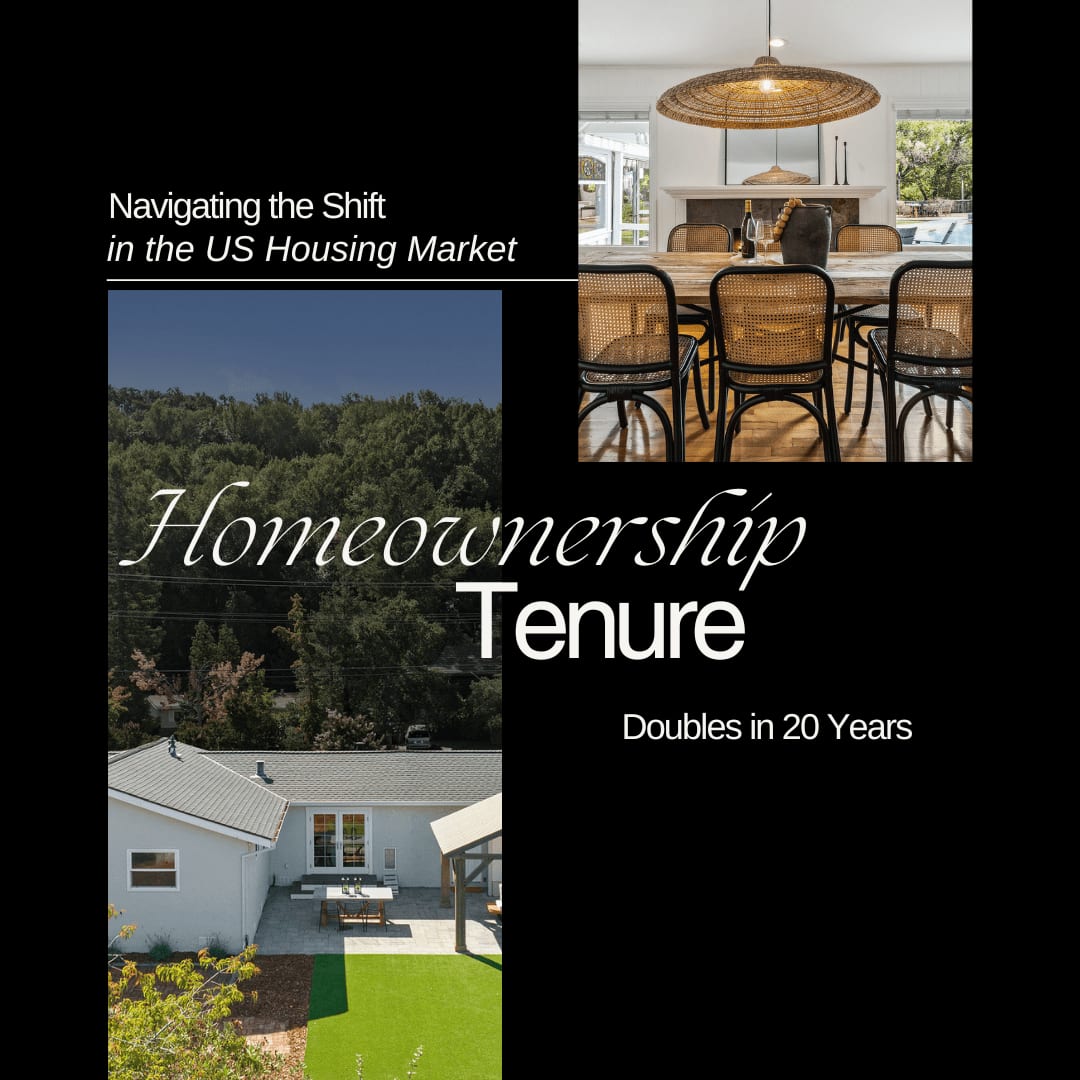Homeownership Tenure Doubles in 20 Years: Navigating the Shift in the U.S. Housing Market
In the ever-evolving landscape of the American housing market, a fascinating trend has emerged, shedding light on the changing dynamics of homeownership and its implications for buyers and sellers alike. According to a recent report by Redfin, as highlighted in a HousingWire article, homeowners are now staying in their properties for significantly longer periods than they did two decades ago. This blog delves into the insights provided by this report, exploring the factors behind this shift and its impact on the housing market.
Homeowner Tenure: A Doubling in Duration
Drawing on census data, Redfin's analysis reveals a striking increase in the median tenure of homeownership in the United States. As of last year, homeowners are staying in their homes for a median time of nearly 12 years—almost double the duration from 6.5 years in 2005. This trend, though slightly retreating from its peak in 2020, underscores a significant shift in how Americans view and manage their living spaces.
The Driving Forces: Baby Boomers and Aging in Place
The report attributes this increased tenure primarily to older Americans, especially baby boomers, who prefer to age in place. With nearly 40% of baby boomers having lived in their current homes for at least 20 years, and another 16% for 10-19 years, the impact of this generation on the housing market is profound. This preference contrasts with the mobility of millennials, who, influenced by job changes and other factors, are less likely to stay in one home for a decade or more.
Economic and Demographic Shifts
Several factors contribute to this trend, including the aging American population and the high homeownership rates among older generations. For instance, nearly 80% of baby boomers and 72% of Gen Xers own their homes, compared to a lower percentage among millennials and Gen Zers. Financial incentives also play a crucial role, as a significant portion of baby boomers own their homes outright, enjoying the benefits of low housing costs without the burden of mortgage payments.
Consequences and Challenges
This prolonged homeowner tenure is reshaping the housing market in several ways. Firstly, it contributes to the current inventory shortage, making it harder for first-time buyers, particularly young families, to find suitable homes. The scarcity of available homes is exacerbated by the fact that baby boomers own a large share of the homes suited for family living, leading some potential buyers to turn to new construction or renting as alternatives.
Looking Ahead
The Redfin report suggests that homeowner tenure is likely to remain stable in the near future. However, the implications of this trend extend far beyond mere statistics. It signals a need for a strategic approach to housing policy and market strategies, aiming to balance the desires of aging homeowners with the needs of younger generations looking to enter the market.
As we navigate this changing landscape, it's clear that understanding these trends is key to unlocking opportunities and overcoming challenges in the housing market. Whether you're a homeowner considering your next move, a buyer looking to enter the market, or a real estate professional advising clients, these insights offer a crucial perspective on the path forward.
In the spirit of unlocking opportunities and realizing dreams, we at the Faber Real Estate Team are here to guide you through these complex market dynamics, offering expertise and partnership every step of the way. Together, we can explore the possibilities and find "The Key To Your Dreams®."
Faber Real Estate Team | Compass The Key to Your Dreams ® Ben Faber DRE #01913767 [email protected] www.faberrealestateteam.com @faberrealestateteam 🤙🏽415.686.4980

